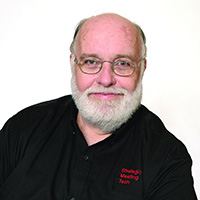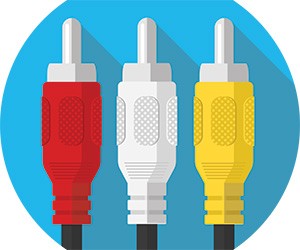Meeting and event audiovisual is one of those things as an attendee you often don’t notice until it blows you away—or blows up a meeting when it doesn’t work.
For meeting and event planners, procuring the services of an inside or outside AV provider is often a leap of faith, as it lives in the foggy realm of technology gearheads and audio aficionados. But just one mistake in the AV arena can result in an amplified level of on-site embarrassment and unexpected charges that can torpedo a budget.
“If we look at this historically, it used to be that AV was an in-house service,” said MaryAnne Bobrow, president of Bobrow Associates. “Then the hotels and centers and other venues decided that they didn’t want keep the equipment, and so they outsourced it. So then in addition to paying the AV fees that you would normally pay, you ended up paying the commission back to the hotel for the luxury of using their in-house provider. Once that was in place, the venues then went to the all-inclusive, where you could buy out the AV, or you could pay a fee to them to only use them in specific circumstances.”
[Related Content: 5 Essential Questions to Ask Your AV Team]
As with most everything else in the meetings and events industry, having established relationships with suppliers always pays off in the end.
“If you are well immersed in the industry you probably have a few providers that you are personally familiar with and have a working relationship with, which will help to keep your audiovisual costs under control,” Bobrow said. “If you don’t, you’re at the mercy of the venue unless you have properly negotiated your contract in advance to allow you to have the third party of your choice and not have to pay any support fees or buyout fees, which I’ve done for my meetings for the past few years and continue to do moving forward.”
Following are some key observations by meeting planners and AV suppliers on how planners should enter the audiovisual void and negotiate with confidence, with an eye on the bottom line.
Jon Trask, Owner, Strategic Meeting Tech
www.strategicmeetingtech.com

“There’s a lot of controversy on the AV side of things,” said Jon Trask, owner of independent AV consulting company Strategic Tech. “A lot of properties will really try to narrow the path and push you into using the in-house company. The in-house company can be the right decision for meetings—I don’t have a particular bias, and I’ve worked on both sides of the fence—but a lot of planners don’t know how the in-house companies work—how the money is made.”
Mind the rigging and negotiate the price down: “Many times what you’ll find that is very restrictive is the rigging and the power, and they do that under the umbrella of safety. I’m all about safety and understand that, but I’ve had a lot of instances where the in-house companies will waive those charges and then charge a significant amount through an outside company.”
Who’s who and outsourcing: “Oftentimes no matter which company you hire, some of these services can be the same people supplying them, or the same equipment, but it’s just different people managing them. It just depends on who’s hiring them. A lot people make the argument that the in-house doesn’t have the access to the latest equipment, but there are a lot companies that have that equipment they can rent.”
Union dues: “Some companies have signed union contracts and others will use a payroll service. If I’m going into San Francisco and my company hasn’t signed a union contract, I would place an order through [a third-party company] and they would go down to the union hall and they would authorize it. In Chicago there are three different unions to work a room. Each one of those unions is going to have a different set of rules; one gets double time, one gets overtime after five hours without a break, for example. The unions have certain jurisdictions, and you can look for a non-union property, but if the venue has signed a contract you’re going to have to be compliant with that.”
Sweat the contract details: “The current guidelines for AV providers [for one major Las Vegas hotel casino company] is 15 pages, describing how you have to interact. The things that they’re exclusive on and the things that are prohibited. It says the outside personnel are only allowed to consume food and beverages that are purchased from the hotel, so we can’t bring a pallet of water in for our guys anymore. A lot of planners don’t know what’s going on behind the scenes.”
Obtain the production guidelines: “If you’re in the negotiation stage with a hotel, ask for the production guidelines. Some hotels may not have them but the larger ones will have a written set. Even if you use an in-house it’s good to know what to expect and what their standards are.”
Mix up in-house and outside suppliers: “When I come in as an outside person I will often use the in-house for something. It lets me be a customer—such as them serving the breakout rooms—and it makes everybody a little happier, and I have my guys working in the main ballroom. It comes down to the complexity of the meeting. The more complex your meeting is the more likely you’re going to find expertise outside of the hotel.”
Look at the makeup of the systems: “Give me a little idea of the capability. I don’t need to know how to run it, but I need to know what this system does. Planners don’t really know what they’re intending to do, so they’ll pull up last year’s equipment list and send it along. It’s better to have a conversation with the AV company, saying, ‘We’re having a sales meeting where we want to fire them up, with PowerPoints, five people on the stage at the same time at one point, and a band that will be playing.”
Get creative: “One time I spent $100 at The Home Depot for mesh screening for behind the stage, and with the lights I’m sure the whole thing cost less than $500.”
Robert Cherny, The Launch Group
www.thelaunchgroup.com
“The big tip that everyone overlooks is advance planning,” said Robert Cherny, of The Launch Group. “The majority of companies are set up to take advantage of people who are not willing to do their planning ahead. If you do plan ahead you’re going to get the savings, you’re going to get the better people, you’re going to get the better gear. The point is that you need to look ahead at what your needs are, because if you come in at the last minute the sharks are out there waiting for you.”
Even if planners don’t know the exact attendance of their meeting, a ballpark estimate is usually enough to begin the conversation with a good AV company, he said: “’Somewhere in the neighborhood of 1,500 people’ is closer than, ‘I have no clue.’”
Determine whether the meeting facility has an “exclusive” or “preferred” contract status with the in-house audiovisual provider: “As a part of the initial negotiation with the venue planners need to find out which venues are exclusive and which are preferred—there’s a world of difference between those two.”
Is the venue suitable for your event?: “I’m blown away by the number of people who sign a contract for a building and the building is not suitable for the event. Either the rooms were too small, or the distance between the meeting venues was too large, or the room block was scattered throughout the property. You can have a room block scattered between two or three hotels, even though your meeting is in just one, and if you don’t pay attention, you’re going to get bit.”
Be diligent during the site inspection: “A lot of issues are [visible] when you do the site inspection, but you’re so wowed by the sales person that you don’t pay attention. It’s just a matter of taking the time and thinking about what you’re doing….If you have an AV vendor that your routinely work with, consult with them before you do a site inspection. A lot of times the AV vendors have worked in these buildings and know the pitfalls.”
Look for “surprises” in the contract when you’re using entertainers: “The technical addendum to the contract, which the agent will not show you unless you pound on the agent’s desk and demand it, can double the cost of the performer. You should take that technical requirements document to a reputable vendor for pricing before you hire a performer.”
Who owns the gear?: “You need an AV company that’s used to dealing with name performers, and not all of them are used to doing that. The good companies are going to come back to you and say, ‘I know what they’re asking for, but ask them if we can use this instead, because we have that in stock.’ What you’re looking for is a company that stocks what you need, because every time they have to go outside and sub-rent something, that jacks up the price. Whether it’s an in-house or outside third party, the big question to ask is, ‘Do you own the gear?’”
Skip the ceiling speakers, if possible, to skip additional connection fees: “Other than for background music and ‘the lights are on in the parking lot’ announcements, ceiling speakers are worthless. There are places you’ll want them, in the lobby areas, etc., where you’re doing background music and fill. That’s fine, but in the meeting rooms, no.”
Test Internet connectivity during the site inspection: “Do your site inspection at a time when the building is full and try to log in. When the building is full you can see if it’s working and where the choke points are.”
“Make no mistake about it, this is hard work,” Cherny said. “There is nothing easy about anything I said—there’s no shortcuts here. That’s the hard part. All the time people are looking for the shortcuts and the easy way to do it, and there just isn’t. The planner who’s willing to dig in their heels and be aggressive is going to get the best results for their clients.”
Christa Scannell,
Director of Business Development, Southwest Region,
Markey’s Rental & Staging, www.markeys.com

“I come to the business with an event planner mindset, said Christa Scannell, director of business development, Southwest region for Markey’s Rental & Staging. “In the first conversation with the AV company they should be asking a lot of questions of the planner; room size, how many attendees, what are you trying to accomplish, what’s your objective?”
Be up front about what your budget is, and ask for options: “What’s your must-haves versus your nice-to-haves? First, what has to happen, then let’s talk about something that would be nice to have, and let’s see if we can make it work. There might be ways to add value for something the planner wants once you have that must-haves list.”
Bring in your AV partners early: “I think some people avoid brining their various partners in early because the think it’s going to cost more, but an AV company is not going to charge you more. It’s actually going to save you money. They can help you troubleshoot things, such as rigging, power and labor.”
Get a quote and stick to the plan: “Post-quote decisions can trigger additional spending, like adding an extra breakout session.”
Ask the AV company about trends they’re seeing: “What have you seen lately? Have you worked on a conference or meeting like mine and tell me what works? That engages them. It builds that relationship and trust, and then they’re immediately more engaged in providing a solution and providing ideas.”
Consider piggybacking on another show in the building: “Who’s the show right before me? Is there any way we can mutually benefit each other? From a labor standpoint, definitely. The AV company also wants the extra business.”
Use LED fixtures for lighting: “Using LED fixtures for lighting consume less power and are more lightweight, so they impact rigging in a positive way. You may spend a little more per unit for those lighting fixtures, but there can be aggregated savings because you don’t use as many rigging points. Using LEDs means fewer rigging points, less energy and less labor.”







